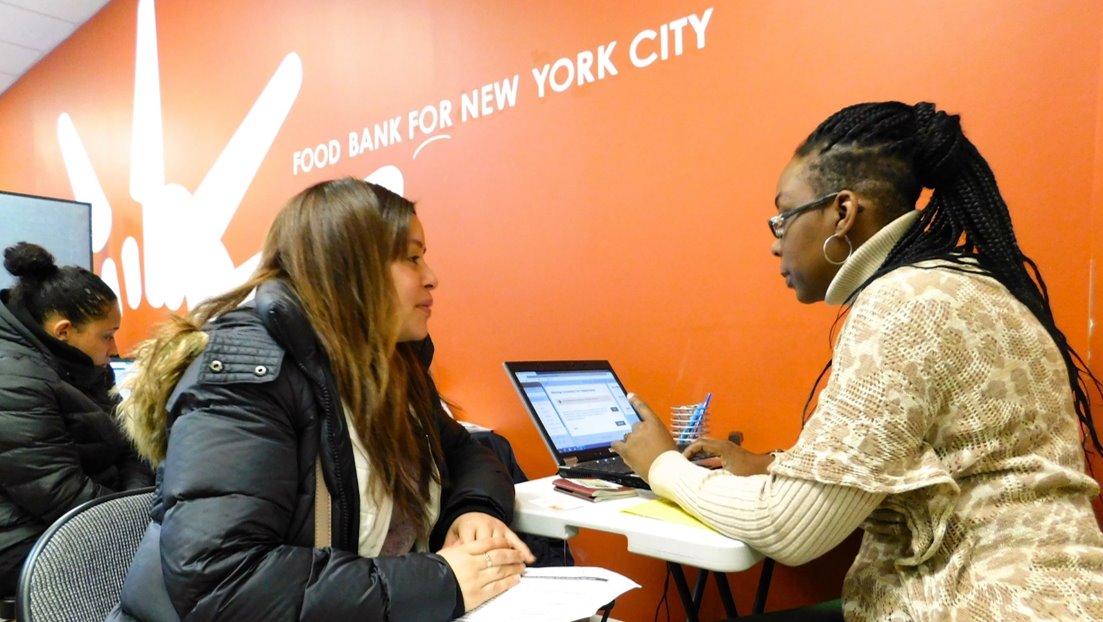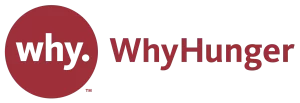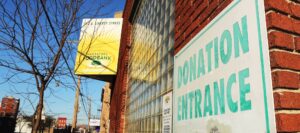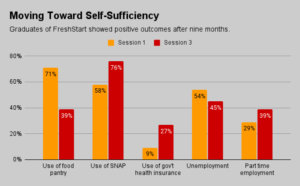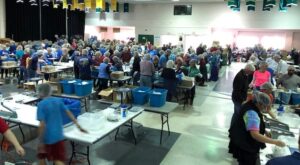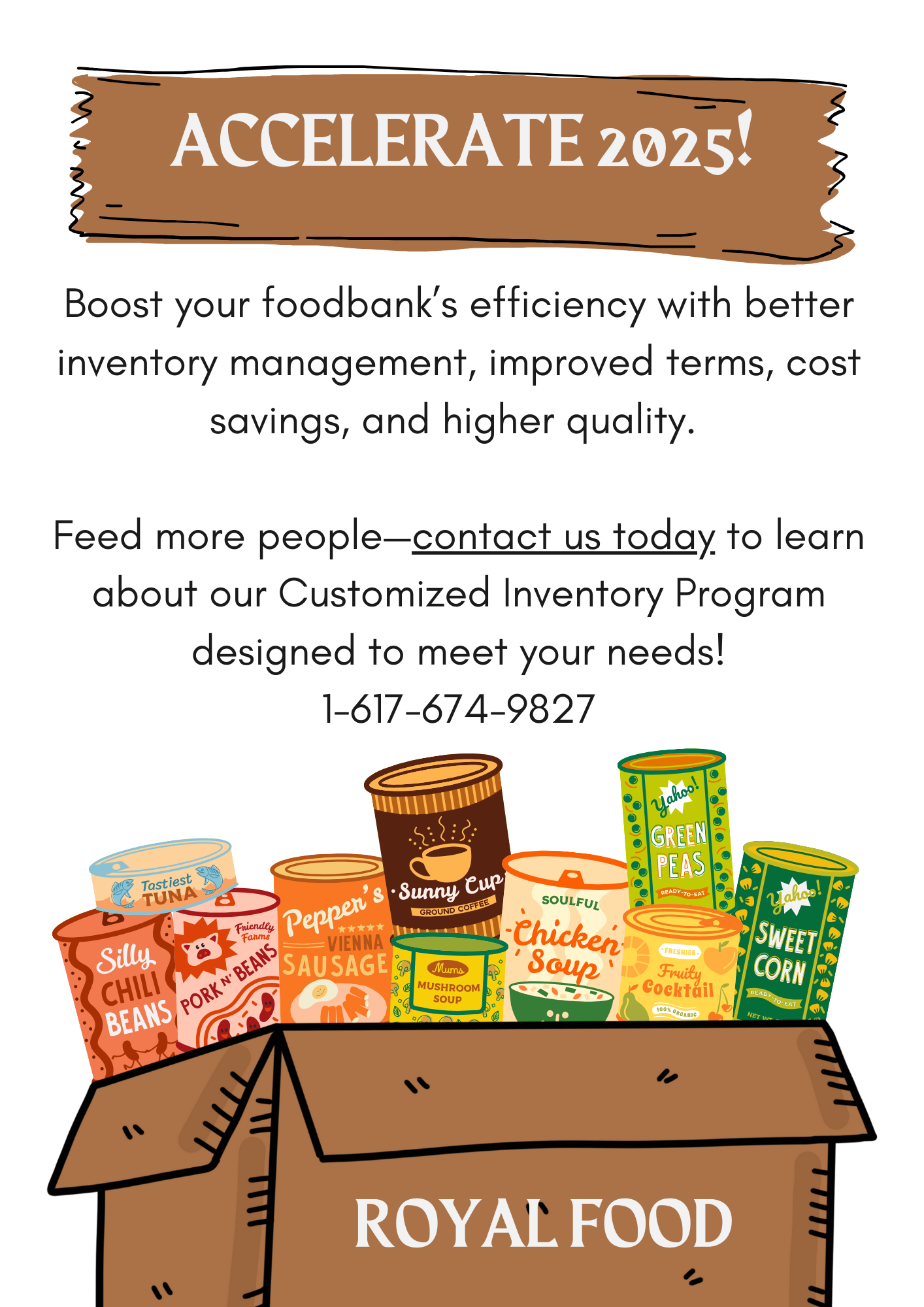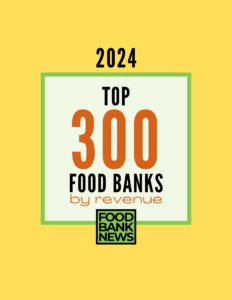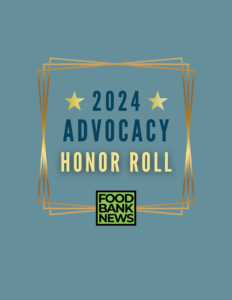There may be food banks out there that offer free tax prep and filing services to low-income individuals, but perhaps none have embraced it as forcefully as Food Bank for New York City.
Since 2002, the food bank has been taking advantage of a long-standing Internal Revenue Service program that helps community organizations all over the country train volunteers to help people file their taxes. The food bank now runs one of the largest IRS Volunteer Income Tax Assistance (VITA) programs in the United States, making it second only to the U.S. military in providing free tax assistance, according to the food bank.
The IRS’s VITA program has been around since 1969, and currently provides support to about 11,000 community partners around the country, to train and certify about 80,000 volunteers to prepare tax returns to IRS standards. In addition to the training, the IRS also offers monetary support to some VITA providers. In 2021, it awarded $25 million in grants to 273 VITA applicants.
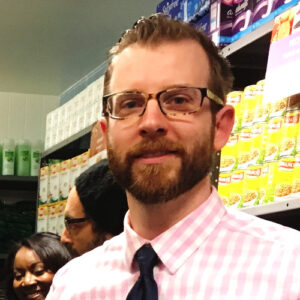
Tax refunds may be the single biggest check that some low-income households see all year, said Zac Hall, Senior Vice President of Programs at Food Bank for New York City. The food bank sees free tax help as building on its core mission of providing access to benefits and services that can help people reach both financial and food security.
“We know that food alone cannot solve hunger,” Hall said.
This year, the food bank hopes to file more than 16,000 returns on behalf of clients at more than 75 locations throughout the city, to produce $25 million in refunds and $8 million in savings on filing fees for New Yorkers. Over the past 20+ years, the food bank has filed more than 830,000 tax returns and secured $1.4 billion in tax refunds for New Yorkers.
The food bank recruits volunteers and implements the programming through some of its pantry partners, while the IRS provides access to free software, as well as general materials and guidance used to train staff and volunteers. The food bank is also a recipient of grant funding from the IRS in the range of hundreds of thousands of dollars, Hall said. “Over the years, we’ve been able to grow their support, which is fantastic,” he said.
This year the food bank expects to place 200 to 250 volunteers – many of them students looking to gain experience – in tax prep roles throughout the city. Volunteers get about one day of training and need to complete an IRS certification that requires them to pass an open-book test showing they know where to find answers in the tax code.
Clients, who qualify by earning $65,000 or less, can get in-person help through the food bank’s network or choose to upload their documents electronically to a back end hub manned by food bank staff and volunteers who prepare the returns. They can also take advantage of a “self-prep model,” in which the food bank provides a tax coach on site at a library or other community outlet that has a bank of public computers. “We’ve been building out different models of tax assistance that meet people where they’re at and leverages the benefits of our network,” Hall said.
Food banks are well-positioned to provide tax help, though it appears that few of them are taking advantage of the IRS’s VITA program. Nonprofits engaged in financial literacy and economic empowerment appear to be heavy users of VITA, while a quick glance at a list of about 300 grant recipients for IRS funding shows Food Bank for New York City as the only food bank grantee.
Hall noted that the IRS provides VITA training and partnerships through local programming offices all over the country. He advised food banks interested in starting up a tax-prep program to reach out to existing relationships, such as universities, and begin by doing something small but well. “The IRS is very focused on making sure that VITA is available for anybody who’s eligible,” Hall said. – Chris Costanzo
Like what you’re reading?
Support Food Bank News
